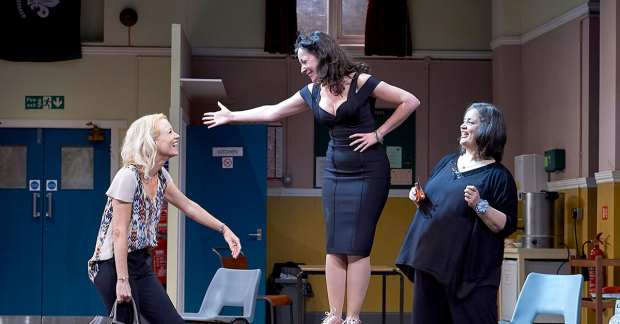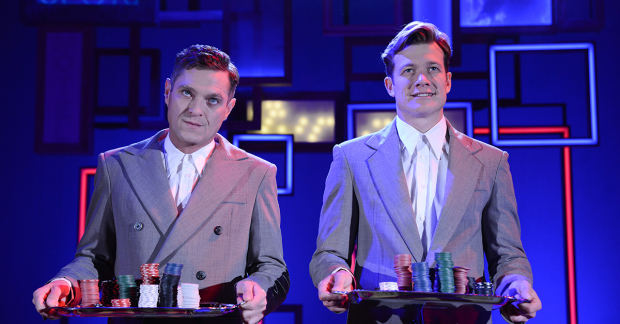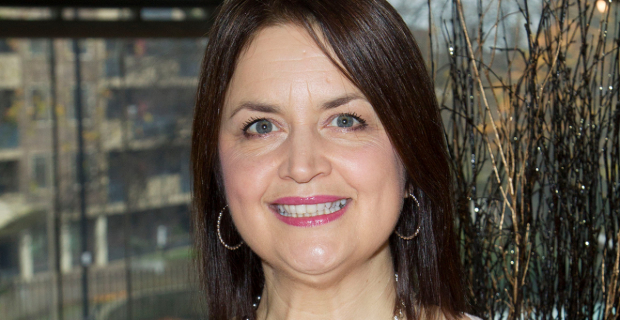Review: The Nightingales (Theatre Royal Bath)

© Geraint Lewis
You will probably feel like you know William Gaminara's new comedy. Set entirely in the hall of an unnamed village (Richard Harris' 1984 Stepping Out immediately rings a bell), it follows a local choir, which is joined by an outsider. Could this be comforting community activity helps small-time locals bond and do good?
Well, actually, no. At the beginning it looks as though new-to-the-village Maggie's infiltration of the five-strong choir led by Steven could be about them accepting the slight oddball into their midst and embracing her. Then darker forces come into play. Maggie (played by Ruth Jones) has a lot to say, much to the irritation of Steven Pacey's Steven – who as choir master wants them all to focus on singing – and is all of it true? She uses her dulcet Welsh tones and lilting patterns of speech to lull the group into a false sense of security.
But then, Maggie is about as lost as all of them in this play, which has the group decide to go up for a national singing contest and name themselves The Nightingales. Each of the characters are unhappy – fundamentally so – and the catalyst of the competition provokes cracking at their edges. The climax is both the audition and also the moment of reveal for Maggie and the rest of them.
The problem is that while Gaminara has some sharply observed and often quite funny things to say about loneliness, deep unhappiness and the drudge of real life, ultimately the character of Maggie is very problematic. A single mother, new to an area, with no friends, is she doing what she's doing on purpose or because she can't help it? We are never sure, and although one could argue that the distinction doesn't matter, we are absolutely made to feel like it does. In monologues out to the audience we get snippets of her motivations and she's painted part villain part victim and while, of course, things are never black and white, this means we basically end up loathing all of the characters onstage.
There are some sharp, blackly comic lines in the script and Gaminara has a good way of demonstrating how situations are being manipulated by each of the characters in their way. Jones is a balanced, well-judged Maggie and her final speeches do make you realise that loneliness can be such a palpable, physical thing to suffer. But ultimately you feel bad for hating her and bad for liking her, as you do with the rest of them too.
Christopher Luscombe directs with his usual pin point accuracy and deals with the troubles in the script very well. The timing and pace of the piece, which could have dragged, is kept up and as a result The Nightingales is an attention-holder. You can't help but continue to wonder what on earth will happen by the end. But ultimately it feels misjudged. A benign play about toxic relationships.
















